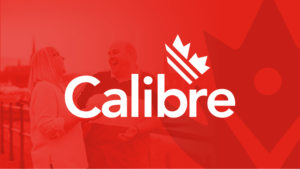The Calibre training program is a 7-week virtual interactive course designed to enhance and upgrade the knowledge of healthcare professionals in obesity management. This course focuses on the practical skills you need today, to implement tomorrow.
This training has been developed with the learning needs of physicians in mind, however is open to any healthcare professional who wants to integrate and implement obesity management into their current practice and who are looking for tools and resources on how to respectfully and sensitively manage obesity. Calibre has been designed to inform the process and standard of care for people living with obesity.
The estimated time to complete this program including both the asynchronous and synchronous activities is approximately 22 hours.
The full course syllabus can be found below. High level topics that will be covered in this training include:
- Determinants of obesity and pathophysiology of obesity
- Communication
- Weight bias, stigma & discrimination
- Evidence based obesity treatments
- Goal setting, outcomes & changing tactics
This course has undergone a review from a patient advisory committee to include perspectives from people living with obesity.
This course was co-developed and planned by the Canadian Society of Endocrinology and Metabolism, the European Association for the Study of Obesity and Obesity Canada to achieve scientific integrity, objectivity, and balance.


The Calibre training course provides a great mix of clinical case studies mixed with current evidence and strategies to support Canadians living with Obesity. The content not only covers current pharmacological strategies, but includes lifestyle interventions, motivational interviewing and improved alignment with the understanding of metabolic changes seen with weight loss and management. The language used is very helpful and informative to prepare clinicians to support patients with appropriate choices of language and reflection to avoid body shaming and increase the necessary trust to be built and foster a patient centered practice.
Zach Weston, CSEP Clinical Exercise Physiologist, CEO, Canadian Society for Exercise Physiology
Upon completion of this learning intervention, participants will be able to:
Implement evidence-based obesity care strategies in primary care in keeping with best practices for patient-centered care and safety
Identify respectful and effective communication styles to mitigate weight bias, stigma and discrimination
Assess and diagnose obesity using appropriate, evidence-based, objective investigations
Collaboratively evaluate outcomes, expectations and goals with patients
Module 1: Introduction to Obesity Management
- Welcome Video
- Ground Rules & Expectations
- Activity: Identify your location and current barriers in managing obesity.
- Pre-course Knowledge Check
- Learning Objectives
- Lived-Experience Video
- Required readings
Module 2: Understanding Weight Bias and Genetic Factors in Obesity
- Learning Objectives
- Lesson 1: Weight Bias & Obesity Stigma: Implications for Healthcare and Patient Outcomes
- Lesson 2: If the Genes Fit, You Must Admit: The Complex Nature of Body Weight
- Lived-Experience Impact
- Journal Reflection
- Interactive Case Study
- Live Session 1: 2 hour workshop
- Evaluation
Module 3: Advanced Obesity Assessment and Management
- Learning Objectives
- Lesson 3: “Beyond BMI: Obesity Assessment & Staging for Busy Doctors & Patients”
- Lesson 4: “Beyond Nutrition and Physical Activity: The 3 Pillars of Obesity Management”
- Lived-Experience Impact
- Journal Reflection
- Interactive Case Study
- Live Session 2: 2 hour workshop
- Module Evaluation
Module 4: Collaborative Care and Real-Life Adjustments
- Learning Objectives: Specific aims for Module 4.
- Lesson 5: “Collaborative Care Plans, Managing Expectations and Goal Setting”
- Lesson 6: “Adjusting Treatment Plans to Deal with Real Life”
- Lived-Experience Impact
- Journal Reflection
- Interactive Case Study
- Live Session 3: 1.5 hour workshop
- Module Evaluation
Module 5: Recap on Learnings and Clinical Pearls
Resources: Supporting resources for participants and their patients as printable handouts.
- Live Session 4: 1.5 hour workshop
- Lived-Experience Impact
- Post-course Knowledge Check
- Commitment-to-Change
- Overall Course Evaluation
Certificate of Completion: Issued upon successful completion of the coursework
Forum: Ongoing open discussion and support for all participants who are enrolled and have completed the Calibre course.
MThis 3-credit-per-hour Group Learning program has been certified by the College of Family Physicians of Canada for up to 44.25 Mainpro+® Credits.
If you are working towards obtaining your American Board of Obesity Medicine (ABOM), you can claim 30 of the 44.25 Mainpro+® credits toward the required 60. These credits count as “Group Two” for ABOM criteria.
This activity is an accredited self-assessment program (Section 3) as defined by the Maintenance of Certification Program of the Royal College of Physicians and Surgeons of Canada and approved by the Canadian Society of Endocrinology and Metabolism. You may claim a maximum of 18 hours (credits are automatically calculated). Participants should only claim credits commensurate with the extent of their participation in the activity.
Through an agreement between the Qatar Council for Healthcare Practitioners and the Royal College of Physicians and Surgeons of Canada physicians participating in the Royal College MOC Program may record QCHP Category 3 credits as Royal College MOC Section 3 credits.
Accreditation information will be updated as necessary.
The Calibre course has been developed to address the learning needs of physicians who want to integrate evidence-based obesity management grounded in the Canadian Adult Obesity Clinical Practice Guidelines into their current practice.
Non-physicians are eligible to enroll in Calibre however please take into consideration the course was developed for physicians.
This course addresses the following CanMED roles:
- Professional
- Medical Expert
- Communicator
- Health Advocate

Live Session Faculty
Due to the nature of this course we rotate live session faculty. Our expert roster consists of the following:
- Sean Wharton, MD
- Michael Vallis, PhD
- Sue Pedersen, MD
- Sanjeev Sockalingam, MD
- David Macklin, MD
- Shahebina Walji, MD
- Raed Hawa, MD
- Tasneem Sajwani, MD
- Megha Poddar, MD
- Roshan Abraham, MD
This course will kick off with self directed learning with case studies, knowledge checks, practical presentations, and journal reflections followed by two, 2-hour live virtual workshops followed by two 1.5 hour live, virtual workshops.
Once you register, you will receive access to the course one week prior to the first scheduled live session.
Participants will have the opportunity to interact with their peers and ask questions outside of the live course scheduled times. You will retain access to the online materials and recorded workshops post completion of the course.
To successfully complete the course and receive credits, participants must:
- Attend all scheduled live modules
- Complete all online course material
Course Features
- Interactive Features: Quizzes, case studies, journal reflections, and scenario-based learning throughout the modules to ensure an engaging and practical learning experience.
- Continuous Support: Access to online forums and Q&A sessions to facilitate ongoing learning and problem-solving outside of scheduled modules.
- Lived-experience Involvement: Continuous feedback from a patient advisory committee to ensure the course remains relevant and empathetic to patient needs.
- Scientific and Ethical Rigor: Co-developed with leading obesity associations to maintain scientific integrity and balance, ensuring high-quality, evidence-based content.
This structured approach not only addresses the clinical aspects of obesity management but also emphasizes the importance of sensitivity, patient-centered care, and real-world application.
This course has been developed by funding provided by Obesity Canada. There are no sponsors for this course.
Q. What is Calibre?
A. Calibre is a hybrid online CME that combines learn-as-you-go content with live workshops. It was developed through a partnership among Obesity Canada, the European Association for the Study of Obesity and the Canadian Society of Endocrinology and Metabolism. Course content was put together by a blue-chip panel of Canadian and global obesity clinicians and researchers, many of them authors of the Canadian Adult Obesity Clinical Practice Guidelines (CPGs). Patients with lived experience also contributed their expertise to the program.
Q. Does Calibre focus only on bariatric surgery?
A. Calibre is not just about surgery! The Calibre program focuses on the patient journey from having a conversation about weight to assessment, available treatment options, to goal setting and follow-up.
Q. How does Calibre relate to the Canadian Adult Obesity Clinical Practice Guidelines?
A. Calibre uses the evidence and clinical recommendations outlined in the Canadian Adult Obesity Clinical Practice Guidelines (CPGs), along with the clinical and research expertise of the program’s faculty, to underpin the practical advice for healthcare providers that’s offered through the program.
Q.What need did you see to develop the Calibre program?
A. While obesity is a chronic disease, it is not a heterogenous one – how it develops and how it can be successfully managed are not the same for everyone who lives with it. Calibre reinforces the new definition of obesity, where excess or abnormal fat accumulation affects one’s health; it’s not about size, BMI or a number on the scale, but about objective health measures. In other words, you don’t have obesity just because you live in a larger body – it’s only when weight affects health, such as having high blood pressure, diabetes, etc. that one can be diagnosed with obesity.
Healthcare practitioners in Canada and globally typically receive little to no education or training in obesity management, and so professional education is a core activity for Obesity Canada. Obesity Canada administered two needs assessment surveys: one for professionals to determine what gaps there are and one for the public to identify resources that are helpful in managing and discussing their obesity. As well, the guidelines are a comprehensive synthesis of all aspects of obesity prevention and treatment – more than 500,000 peer reviewed papers were assessed in the process of making the guidelines’ 19 chapters. Calibre streamlines the clinical knowledge and tools needed to support patients living with obesity, in a practical but thorough format designed to build clinicians’ confidence in treating obesity in collaboration with their patients.
Q. How is Calibre different from existing obesity management courses?
A. Calibre covers a lot of material in a manageable amount of time – roughly half of the course is learn-as-you-go videos and self-directed reading, but we include three, two-hour live online workshops so that participants can learn with their peers and from our expert faculty. Calibre aims to provide practical, hands-on knowledge and skills with a focus on providing patient-centred care – meaning setting goals, choosing treatments and supports, adjusting treatment plans and following up in a care plan that has patients’ input and buy-in. The message in Calibre is the message in the CPGs – treatment for obesity is not solely about weight loss, but rather on improving health measures and quality of life so that patients can live their best life. No treatment or combination of treatments are right for every individual, and so Calibre will help clinicians work with patients to identify drivers of obesity and possible ways to address them, while setting realistic goals to improve health and wellbeing.
Q. How did people living with obesity contribute to this program?
A. Obesity Canada recognizes the importance of the lived experience and similar to the work on the CPGs, the perspectives of people living with obesity are central to CALIBRE. Through OC’s Director of Advocacy and Public Engagement, we tap into our patient community for input, feedback and participation in all of our projects including CALIBRE. Individuals living with obesity were involved throughout all stages of the development of this program. People with obesity participated in reviewing all content and presentations, providing feedback and developing and reviewing resources for patients that are included in this training for healthcare professionals. Individuals living with obesity also provided videos that are included in each module, so that the content is centered on real-life lived experiences.
Q. How many people living with obesity were involved and in what capacity?
A. There were 7 individuals living with obesity, representing our patient community (more than 2500) were directly involved in the development of this program. Reviews and feedback were provided on all presentations (both recorded and live session), online content, developed resources (both professional and public), case studies, attended scientific planning committee meetings and provided lived experience perspectives to be included in the training modules.
2024
- Cohort 9: November 26, December 3, 10, 17, 2024 6:00pm-8:00pm ET – Condensed Training: Registration open!
- Cohort 8: October 15, 29 and November 12, 2024 10:00-12:00pm ET – Sold out!
- Cohort 7: July 16, 30, August 13, 2024 at 6:00 – 8:00pm ET – Sold Out!
- Cohort 6: April 3-6, 2024 – Condensed, in-person- Sold out!
- Cohort 5: February 7, 15, 21, 2024 – Condensed program – Sold out!
2023
- Cohort 4: December 5, 12 and 19, 2023 – Condensed program – Sold Out!
- Cohort 3: June 13, 20 and 27, 2023 – Condensed program – Sold Out!
- Cohort 2: February 7, 21 and March 7, 2023 – Sold Out!
2022
- Cohort 1: November 15, 29 and December 13 2022 – Sold Out!
-
7 Lessons
Calibre: Cohort 9
To be eligible for professional credits, you must attend all of the live sessions. Live sessions are hosted over Zoom. Cohort 9 Live Session Dates:…
Calibre was well laid out with top notch faculty. I liked it that you heard from a different faculty every week. The weekly prep was very manageable. I know it did endeavour to be interactive among participants but with such a large group this was likely biggest challenge. I would recommend it to colleagues as a way to dive deeper into the clinical practice guidelines
Lindsay Myles (Nurse Practioner)


